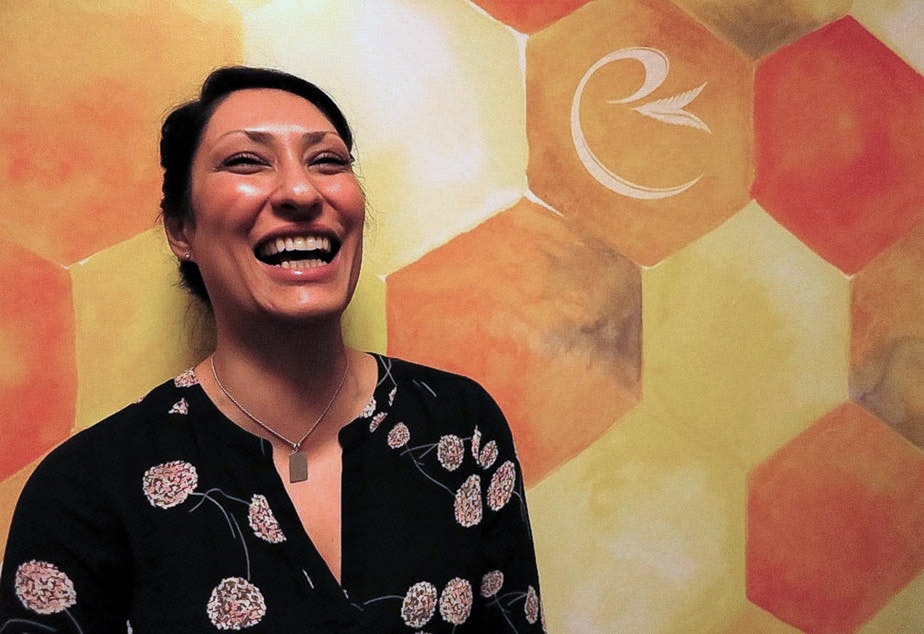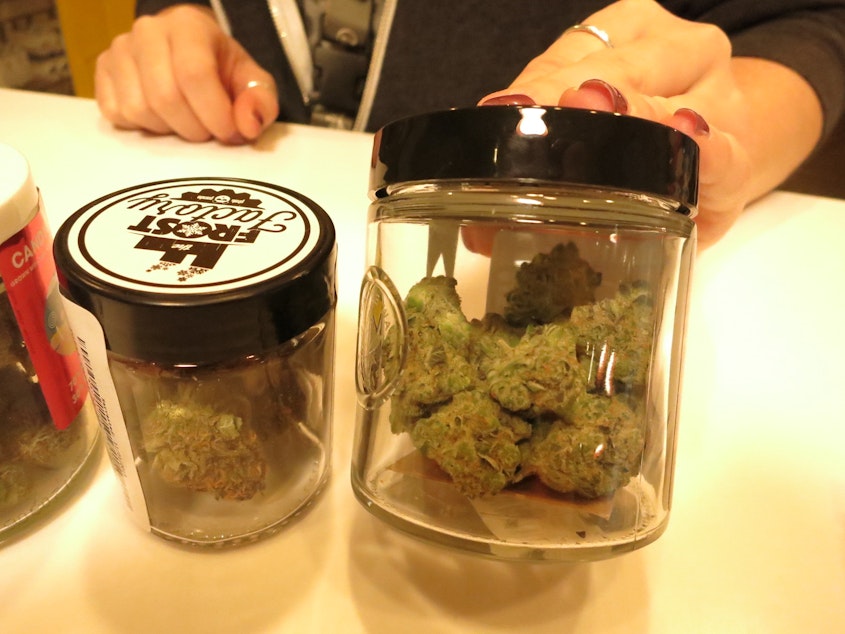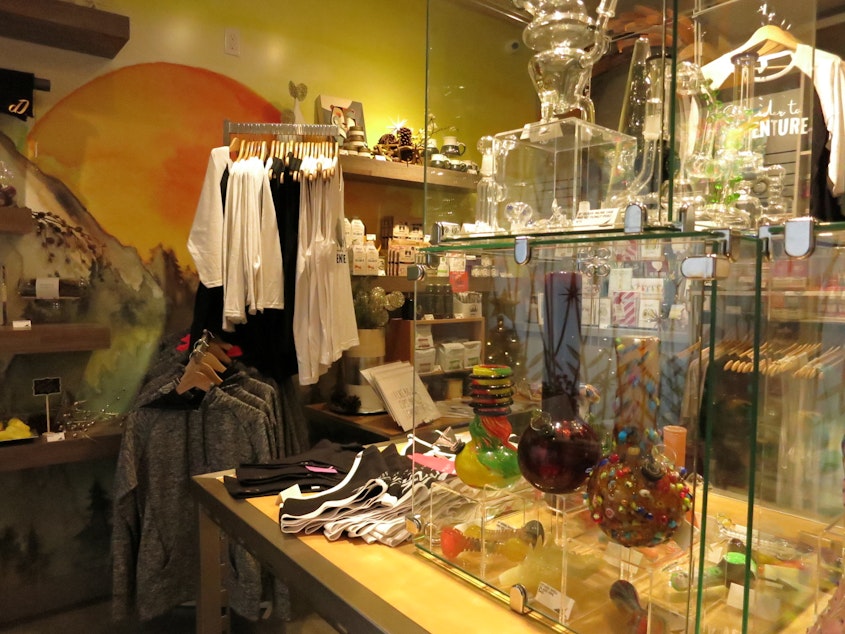She's been engaged for six years. Marijuana laws prevent her from getting married

It wasn’t under the Eiffel Tower or at New Years. When Nick Mayer proposed to his long-time girlfriend Maryam Mirnateghi, "it was fairly humble," he said.
Dinner at an Italian restaurant in Seattle. Some wine. Mayer got down on one knee. A sentimental “Let’s spend our lives together” kind of thing.
That was six years ago.
Washington state law RCW 69.50.328 and regulation WAC 314-55-035 have kept them legally apart ever since.
Mayer is the CEO of Trinity Productions, a cannabis producer in Moses Lake. His fiancée Mirnateghi owns the Canna West Seattle retail dispensary and boutique.
“By law, you and your spouse cannot own both retail and production,” Mirnateghi said. “So we haven't been able to get married because neither one of us wants to sell our business.”
Sponsored
[A Seattle doctor writes, We need to talk about the cons of marijuana]
The Washington State Liquor and Cannabis Board intends to revise the rules regarding spouses and marijuana licenses in 2020, spokesperson Brian Smith said.
This decade, 11 states and the District of Columbia legalized marijuana for recreational use, with Washington and Colorado leading the way.
In 2012, recreational cannabis became legal in Washington and legal sales started two years later. Now, pot smoke wafts through Seattle streets, cannabis dispensaries dot our cities, and CBD products sparkle on pharmacy shelves. We even have an etiquette book on cannabis dos and don’ts.
While stigma around cannabis use has eased, federal prohibition and state legal barriers still keep marijuana from being as mainstream as a glass of Chardonnay.
Sponsored
The law keeps cannabis entrepreneurs Mayer and Mirnateghi from total normalcy too.
“It’s just another one of those, I guess you would call it ‘compliance factors,’ you have to deal with in this business that other businesses don’t have to deal with,” Mayer said.
Marijuana producers face real estate, banking, and tax challenges, he said, like being unable to deduct business expenses because of federal law.
“You get screwed every which way you turn,” he said.

Sponsored
Before recreational legalization, opponents predicted stoned driving en masse, traffic collisions, and more rampant teenage pot use.
“With legalization, all these things that were predicted that were going to happen haven’t come true so people are (saying), ‘Well, maybe this isn’t as bad as we thought,’” said Clayton Mosher, Washington State University sociologist and co-author of In the Weeds – Demonization, Legalization, and the Evolution of U.S. Marijuana Policy.
The state did a good job implementing legalization so those fears wouldn’t come true, Mosher said.
Many Washingtonians are seeing positive effects from legalization, such as less prosecution of marijuana offenses, more tax revenue and less stigma of users, according to a survey of 538, mostly white Washington residents by WSU graduate student, Lindsay Beltz.
Survey respondents noted how people can smoke marijuana openly without fear, but smelling it everywhere is a bummer. It’s illegal to consume marijuana in a public place, under Washington state law.
Sponsored
Legal public use would further normalize weed, Mosher said, "if we had places where you could go and smoke."

Still, social stigma is much less today. Just look back at the 1930s propaganda film Reefer Madness (“Debauchery! Violence! Murder… Suicide!”) or even the stereotype of stoners with munchies in the movie Half Baked (“Pizzas. We need TWO BIG PIZZAS, man.”)
“When I was growing up, it was a gateway drug, and if you do that, you’re going to do crack and blah blah blah,” said Ebony Hill, a Canna West dispensary customer. “I’ve been doing it for years just fine.”
Hill is a mother of four and medical cannabis user.
Sponsored
“I like to use it because I have high anxiety, so the indicas really help me mellow out and relax and get things done during the day.”
Another customer, Bethami Cooper is a retired teacher and uses cannabis for pain. She cooks with olive, grapeseed and avocado oils containing cannabis compounds she extracts from flower.
“Spaghetti sauce is one of my favorites,” Cooper said.
Before legalization she was afraid of getting caught. “After legalization: pure joy.”
Society is still constructing the image of a marijuana user post-legalization, but if the professionals, senior citizens, and mothers that come through this dispensary are an indication, it might become an image that looks maybe a little more normal.
As for the engaged canna-business-people, they’re still waiting.
“We would love to get married, eventually,” Mirnateghi said. “It's just we don't know what to do beyond wait for the laws to change.”

